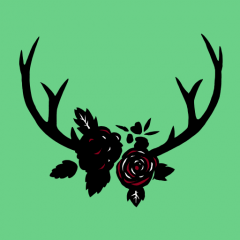Word count: 713 words
Reading time: Approximately 3-4 minutes
Content warning: Amatonormativity
Being aromantic, I feel intimately acquainted with the negative consequences of amatonormativity. Especially over the past year, I’ve been doing a deep dive into amatonormativity in order to better understand it and its impacts on society. The struggles of being aromantic can sometimes be dismissed or belittled or be used to pathologize aromanticism. This is why I find it important to name systems of oppression when discussing the experiences of aromanticism that are not so positive. I get frustrated when I see facts on queer mental health that demonstrate high rates of mental disorders but don’t contextualize them by explicitly naming the systems of oppression that contribute to these struggles.
Equipped with this knowledge, I have come to realize how many of my own struggles are rooted in amatonormativity. Especially as an adult when we are expected to be getting into committed romantic relationships and married, I find the negative impacts of amatonormativity very hard to avoid. It’s so pervasive, but I feel invisible when many around me just don’t see it (or don’t see it as a problem). It feels like shouting into the void sometimes. Amatonormativity has a toll on my physical, social, emotional, and existential well-being, which culminates in struggles with mental health. Making friends as an adult is already challenging, but it’s frustrating that whenever I try to make friends, I have to worry about whether or not they’re amatonormative (most likely they are to some degree) and if they’ll end up hurting me if so- whether intentionally or unintentionally. I have to contend with the fact that people I care so deeply about might end up so willingly giving me up because of their romantic partners. It feels utterly dehumanizing and devaluing, as if I’m not worth it because I’m “just a friend.” Getting my needs met is also a challenge, especially when much of society deems that those needs should be met in a romantic partnership. It is difficult to live day in and day out and cope with stressors when a lot of my needs aren’t met. Healing is relational (for me, at least), but healing can be prevented when attempts at relating to others is often disrupted by amatonormativity. I shouldn’t have to be able to “love” in order to have my needs met or to be cared for. Planning a future and looking ahead feels bleak at times as I wonder whether I will just continue to be in this same situation. Many things I want for my life feel unreachable.
Given all this, how do we create lives we’re content with? How do we take care of ourselves? I admit that I sometimes feel a bit defeatist because of amatonormativity. It’s the dark cloud that hangs over me and impedes my thriving. As I try to build the life I want, it’s the torrential rain that tries to sweep away the seeds I sow. Despite the storm, I press onward and continue to hope for the best. One positive aspect of learning about amatonormativity, is that it actually helped me embrace my aromanticism. Before then, I wondered if I was a little broken, but afterwards I knew that it’s not me that is broken but society. Aromanticism for me is not just an orientation but it has also become a praxis for me, one that redefines how to relate to and care for others. This has helped me to become involved and active in challenging amatonormativity. For me, mitigating the negative impacts of amatonormativity isn’t just self-care but also doing things in a community. Participating in the aromantic community helps to reduce the negative impacts of being aromantic in a romance-focused society. My struggles feel less invisible, and it’s reassuring to know that there are people out there who relate. Enacting change also requires collective action and seeing the efforts that this community puts into advocacy and education and increasing visibility is inspiring and gives me hope. Amatonormativity is a force that threatens to take away our well-being, but we continue to create art, connections, knowledge, dreams, community. This is our resilience. We live in defiance of amatonormativity. Our very existence as aromantics in the face of amatonormativity is radical. Even if it’s hard and heartbreaking at times, I will continue daring to dream.

1 Comment